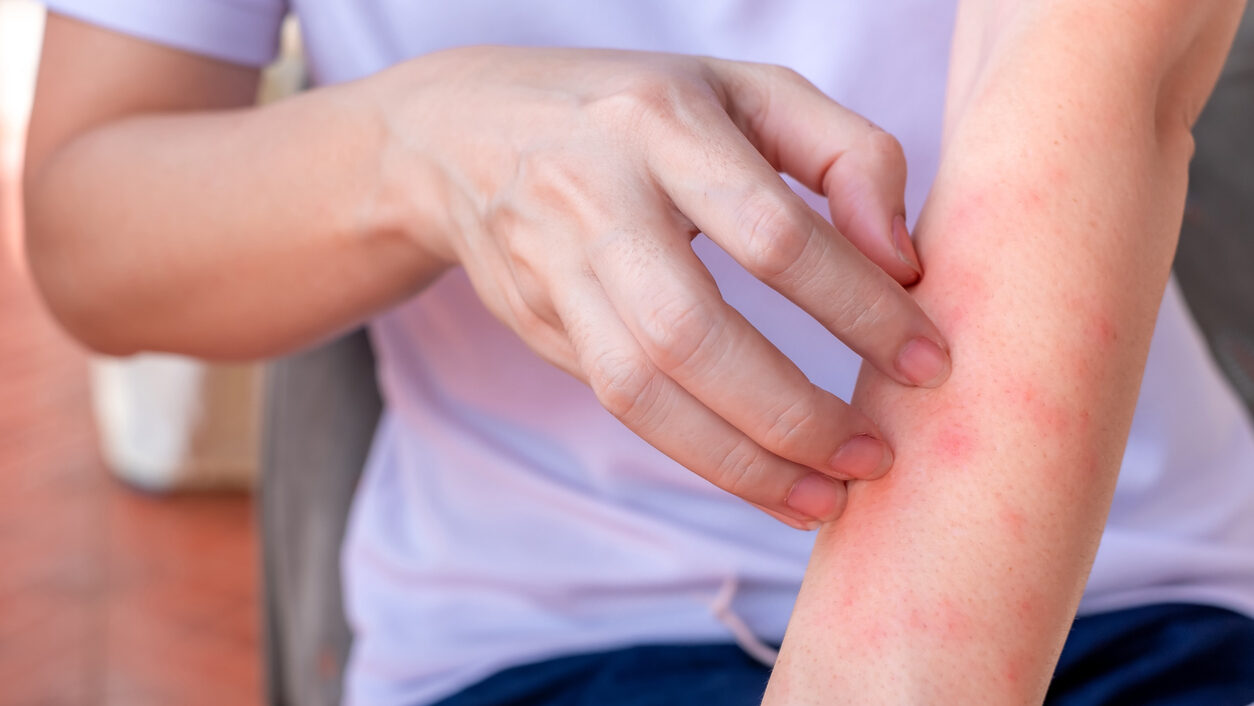About Rashes
Common rashes are unusual changes in the skin color or texture. They normally come from skin inflammation, which can have different causes. These types of rashes are typically caused by:

- Viral or bacterial infections
- Skin conditions such as eczema and psoriasis
- Stress
- Skin irritants such as soap, scented lotions, or fabrics
- Personal and/or family history of allergies, hay fever, or asthma
- Allergies to certain medications
- Trigger agents such as poison ivy or poison oak
Eczema
Eczema, or atopic dermatitis, is a chronic skin condition that is characterized by dry, itchy and inflamed skin. Eczema flare ups can be irritating however, it is not a contagious condition. In addition to dry, itchy skin, patients with eczema may also experience oozing and crusting as well as small, raised bumps on the skin. It is important for patients with eczema to establish good skin care habits including moisturizing regularly which will help relieve some of the symptoms and prevent flare ups. It may be necessary to treat eczema with medicated ointments or creams that can be prescribed by a healthcare provider to help control itching and repair the skin.
Psoriasis
Psoriasis is a chronic yet common skin disease that causes an itchy rash with scaly patches. These rashes appear most commonly on the knees, elbows, trunk and scalp. The rash can often be painful and tends to present itself in cycles with periods of flare-ups that will eventually subside after a few weeks or months. If a patient suspects they have psoriasis, they should see a healthcare provider for treatment. Treatment includes corticosteroids in the form of creams, ointments, oils, lotions, gels and shampoos aimed at treating widespread patches during flare-ups.

Poison Ivy
Exposure of the skin to urushiol, an oily resin in the leaves, stems and roots of poison ivy can cause an allergic reaction resulting in an itchy rash that may last for weeks. It is imperative to wash the skin right away if you suspect contact with poison ivy, poison oak or poison sumac. Widespread or severe rashes may need prescription medications. Seek care immediately especially if the skin continues to swell, you have blisters that begin oozing pus, you have trouble breathing because you’ve inhaled smoke from burning poison ivy or you develop a fever.
Treatment & Prevention
The treatment our providers will recommend depends on the cause of the skin rash and the associated symptoms. Typically, the first line of defense is avoiding triggers that may lead to flare-ups. However, if medication is required, our healthcare providers may suggest over-the-counter or prescription creams and ointments. Additionally, steroids may be indicated for more widespread, tougher rashes. Lastly, our providers may suggest the use of antihistamines like Benadryl to help with itching and other related symptoms. If you have a rash, Chesapeake Telemedicine can see you now! Our healthcare providers can diagnose and treat your rash to give you the relief you need.